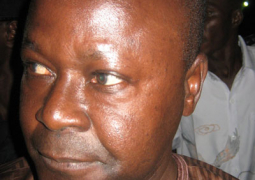A
five-day training course on coastal and marine ecosystems management and
co-management of fisheries resources, under the WADAF project, has been held to
strengthen good governance of fisheries activities within the professional
organization of artisanal fisheries in the West African sub-region.
The
training, held from 5 to 9 August 2016 at the NaNA conference hall, was
conducted by WADAF, targeting Anglophone African countries, including The
Gambia and Sierra Leone.
The
Executive Director of the West African Association for the Development of
Artisanal Fisheries (WADAF), Moussa Mbengue, in remarks delivered on the
occasion, said the regional body is represented in seven member countries of
the sub-region, including The Gambia, Sierra Leone and Guinea Bissau.
The
WADAF regional project aims to enhance the professional skills of organizations
of fish workers and their autonomy, in order to improve their ability to
influence public policy on fishing in the seven countries covered by the
Sub-Regional Fisheries Commission (SRFC).
Mr
Mbenga noted that the training of fisheries stakeholders in general and the
artisanal fisheries, in particular, is a precondition for their effective
participation in public fisheries policies and sustainability of fisheries.
“In
West Africa,” he added, “the fisheries sector in general and artisanal
fisheries, in particular, plays socio-cultural economic and environmental
functions.”
It
contributes significantly to the creation of jobs, wealth as well as food
security of countries, providing most of the requirements in animal protein for
the population, he added.
“In
this system, we note that they don’t have the required skills to read and
understand the environment in connection with the complexity of the fisheries
system to manage their organizations to solve problematic situations, to
formulate and carry out advocacy messages and fit into sub-regional, regional
and international markets of fishery products.”
Faced
with this situation, he went on, governments and development partners have
embarked on fisheries co-management experience that encourages and creates
conditions for active participation of actors and stakeholders.
Dawda
Saine, programme coordinator for WADAF Gambia and executive secretary for
NASCOM-The Gambia, speaking on the occasion, said they were proud to be
partnering with WADAF to implement “such an important project in The Gambia”.
The
fisherman and fish processors tackled a lot of challenges due to lack of
capacity building and financial management, but when WADAF started working with
them they did gain a lot of support and their projects are fully operational
benefitting the local fishing communities, especially the youths, he said.
“We
are really proud to gain from such an important project,” he stated.


